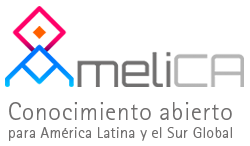Immunizing the Economy: A Causality Discussion on Vaccines and Economic Recovery
Palabras clave:
difference-in-differences, Covid-19, vaccine, economic recovery, business creation, Ecuador, causal inferenceResumen
The COVID-19 pandemic severely disrupted economic activity worldwide. In Ecuador, the pandemic found an epicenter in the city of Guayaquil during April 2020, where the excess death rate skyrocketed to almost 700%. However, in mid-2021, Ecuador had a glimpse of hope again as the vaccination process turned extremely effective and under a hundred days half of the country’s population was inoculated. While since then excess deaths have remained at all-time lows in the pandemic era, the Ecuadorian economy remains weakened. This paper discusses a causal effect of vaccination on economic recovery by implementing a two-way fixed effects difference-in-differences estimator on a repeated cross section of Ecuador 2020-2021 at the province-level. Evidence is found that provinces with apparent vaccine-hesitant populations see about 25% less business creation than provinces with openness to vaccination. This finding stresses the importance of fostering vaccination among populations in a country, especially if booster shots are necessary in the future. This effect is found by leaving out the creation of SAS (Sociedad de Acciones Simplificada) businesses, a new firm legal figure introduced to the country in Mid-May, which prompted the creation of many new formal businesses due to the reduction of entry costs. Only minimal evidence of differential prior trends is found, which supports the existence of causality. Finally, other estimation methodologies are proposed to identify a more precise causal effect of vaccination on economic activity.











